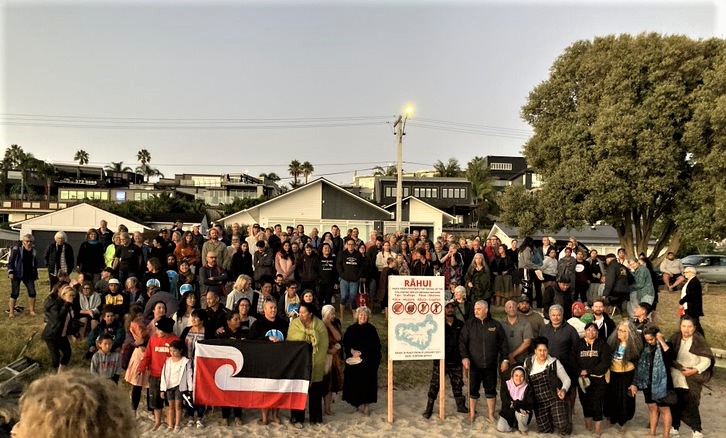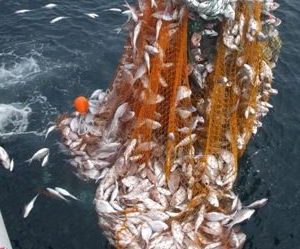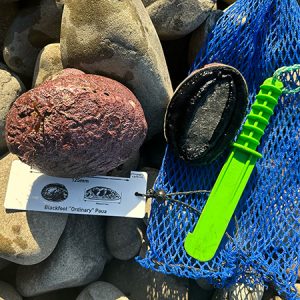On a cool summer’s morning a crew of 14 from LegaSea were standing on Oneroa Beach, Waiheke Island, watching the sun come up over the crowd gathered to celebrate the start of a rāhui. The rāhui means no harvesting of scallops, mussels, crayfish and pāua within one nautical mile of the Waiheke shoreline for at least the next two years.

Around 180 people were on the beach to support Ngāti Pāoa. The beach ceremony and subsequent hangi at Piritahi Marae weren’t just formalities, they were a celebration of community buy-in for better management of the marine environment and fish stocks around the Island.
Last December LegaSea was alongside Ngāti Hei and the Coromandel community as a rāhui was applied to ban the taking of scallops from Opito Bay, on the eastern side of the Coromandel Peninsula.
In January at Waiheke we were standing alongside Ngāti Pāoa, taking with us the fulsome support of the Outboard Boating Club of Auckland, Waiheke Fishing Club, Papatūānuku Kōkiri Marae, New Zealand Sport Fishing Council and the New Zealand Underwater Association. This level of engagement bodes well for wider protection measures in the Hauraki Gulf.
Supporting the rāhui is a way to strengthen the relationship between the Outboard Boating Club and local iwi to ensure the best possible outcomes over the long term.
Bill McGarry summed up the Outboard Boating Club’s support nicely in saying, “Our members are excited to be supporting the rāhui because it’s been obvious for a long time that more effective action was required to protect these species that used to be prolific around the islands of the Gulf”.
At LegaSea we are encouraging our supporters to get behind the initiative as mismanagement of our scallops, mussels, crayfish and pāua is not unique to the Hauraki Gulf, it is happening around the country.
“The Hauraki Gulf is unique in that there is specific legislation requiring the marine resources to be sustained and enhanced to meet people’s social, cultural and recreational needs. This rāhui is a real live example of an iwi-led approach to managing our coastal waters. This could be the start of something positive for the whole Hauraki Gulf”, said LegaSea spokesperson Trish Rea.
Both Ngāti Pāoa and Ngāti Hei have sought approval from David Parker, the Minister of Fisheries and Oceans, for a formal 2-year temporary closure of their respective rāhui areas. Currently the rāhui are voluntary measures dependent on people’s goodwill and sense of community. A closure under section 186A of the Fisheries Act (1996) would require MPI to support the closures.
In our view, these are stark examples of the failing Quota Management System and it’s important we support communities taking the lead and raising their expectations for greater diversity and abundance in local waters.
Petition
Local area management, co-governance of fisheries resources and more abundant fish stocks are all elements of our Rescue Fish policy. Successful implementation of the policy requires a strong show of public support for change. Please encourage your whanau, friends and colleagues to sign the petition at rescuefish/petition.





